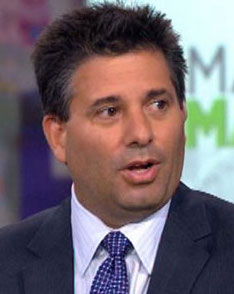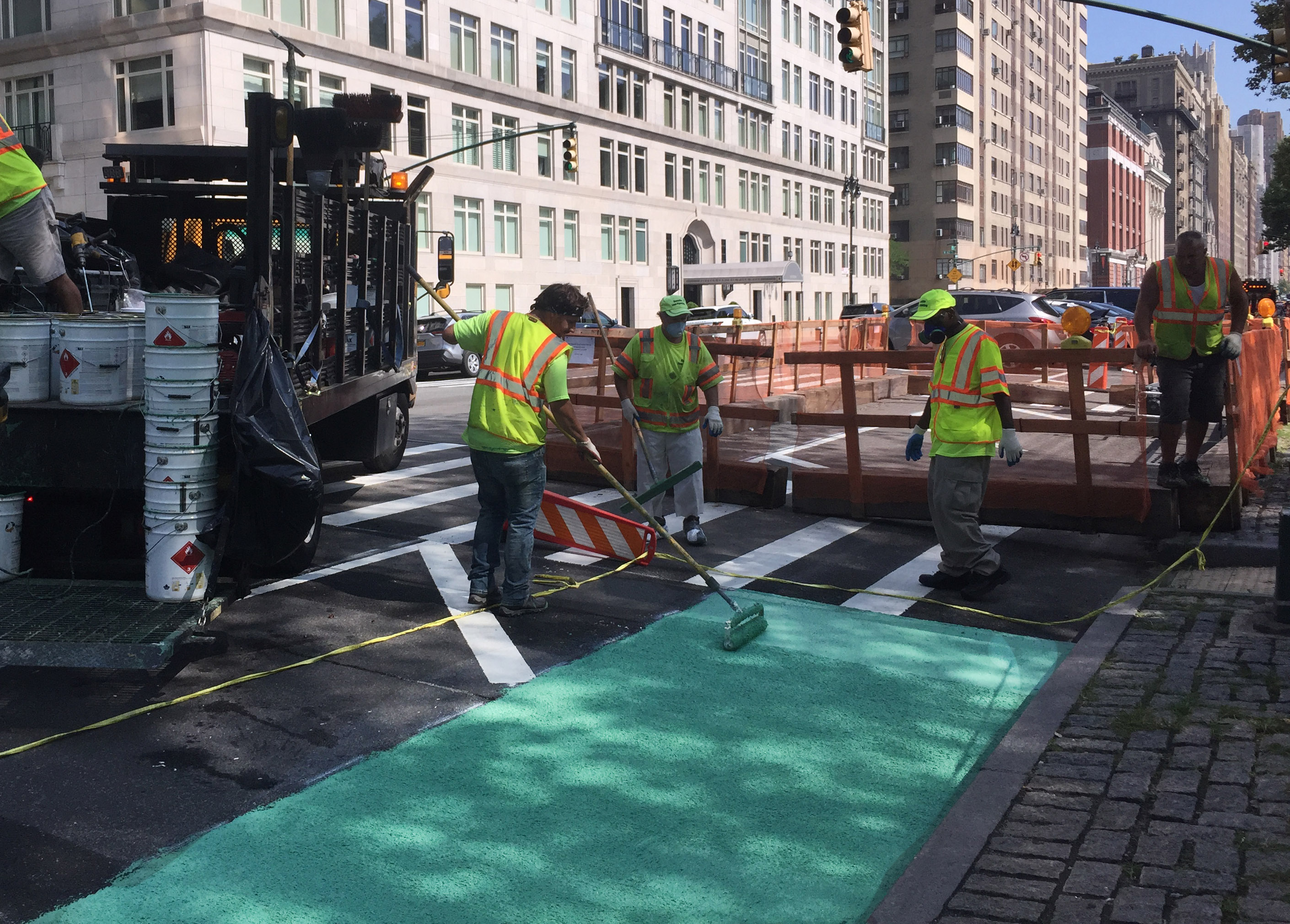A condo board's lawsuit over the city's construction of the Central Park West bike lane must be thrown out because the board's action violates the building's own by-laws, a miffed resident argued in a new filing in the ongoing case.
Kenneth Squire, who lives at 25 Central Park West, filed a motion to dismiss his own condo building board's suit because such legal action is not one of the "19 enumerated categories of powers and duties entrusted to the Residential Board" in the building's rulebook.

Specifically, Squire's court papers offer three ways in which the Century Condo board violated its own rules — and possibly state law:
- The building by-laws don't allow the board to bring the lawsuit, and the board never attempted to get separate authorization from building residents to bring the suit.
- State law only permits condo boards to bring lawsuits involving "common elements" or more than one unit in the building — but this suit is about public property outside the building.
- The board failed to give residents a five-day notice about the decision to undertake the suit as an emergency act, which would have given residents an opportunity to weigh in on whether they supported it.
Ultimately, Squire's paperwork doesn't discuss the merits of the suit itself, but the court documents say that Squire objects to residents being "compelled to fund" actions that, he alleges, the board lacks the power to do.
The board "ignored the by-laws and elected instead to press forward with this unauthorized lawsuit without regard for the views and interests of its constituents," says Squire's court papers, which were filed late last week New York State Supreme Court. "As a resident and unit owner of Century Condominium, I never authorized the Residential Board or any other person to file this action on my behalf, and the Residential Board is therefore not my agent with respect to this proceeding."
It is unclear what happens next. Justice Lynn Kotler could agree with Squire and throw the condo board off the suit — but one resident of the building, Bonnie Eisler, is also a named plaintiff, so the suit would likely continue.
But if the condo board is deemed to have no standing to sue, as Squire alleges, it suggests that the board did indeed violate the building's by-laws. If the condo board is found to have used building maintenance money to wage the lawsuit in violation of its by-laws, that would be a violation of state law, a spokesman for the state Attorney General's office told Streetsblog earlier this month.
In his telling of events, Squire said he only learned about the suit through media reports, and was rebuffed by Board President (and Bonnie Eisler husband) Cliff Eisler when he asked for more information on how the seven-member board decided to bring the suit.
Squire added that Eisler said "no" when he asked Eisler to put him in touch "with just one other resident who supported this action."
As part of his court papers, Squire provided a rare glimpse of the internal machinations of the board's decision to bring the lawsuit against the city — including an internal propaganda effort designed to convince building residents that the suit was justified.
That justification came in the form of a "Q and A" that the board apparently circulated throughout the building (Squire said he received it on Aug. 2). The "question and answer" document offers fact-free reasons for the suit. For example, in response to the question, "Will this affect pedestrians?" Century's management wrote, "Yes. The new bicycle lane will ... make it a 2 ½ mile bicycle speedway full of conventional bicycles, plus newer motorized bicycles, motorized restaurant delivery vehicles, motorized scooters and several newer battery operated transportation devices. There will be no prohibitions on joy-riding speedsters. This will make crossing the CPW to go to or from Central Park very perilous. While the NYPD apparently tickets automobile drivers who disregard bike lanes, NYPD apparently does not have a reciprocal policy of ticketing bicycle riders who dishonor pedestrians."
That is not accurate. At a recent Community Board 7, the local precinct commander testified that 3 percent of collisions in the area involve cyclists and 3 percent of traffic summonses are given to cyclists.
Another question was the class straw man: "I hear there have been deaths of bicycle riders from vehicles in the city. Have there also been pedestrian deaths and injuries from bicycles riders?"
The "answer"? "We suspect that there have been many, judging by the way many bicycle riders drive their bikes."
That is not accurate. As a matter of fact, since 2012, seven pedestrians have been killed by cyclists, compared to 1,008 killed by drivers, according to city statistics.
Squire and his attorneys did not respond to multiple requests for comment. Richard Leland, the attorney for the 25 Central Park West condo board, declined to comment about Squire's allegation that the board is in violation of its own by-laws.






